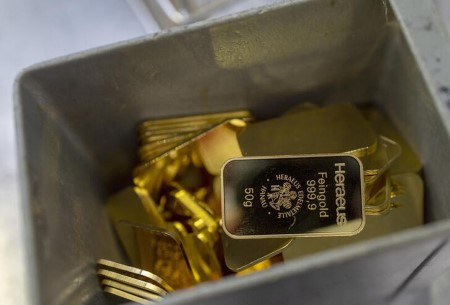




Policy Rate Updates: BSP outlook — cloudy with a chance of rate cut
 DOWNLOAD
DOWNLOAD

January Economic Update: Growth slows, prices rise
 DOWNLOAD
DOWNLOAD

Inflation Update: Up, up, and away?
 DOWNLOAD
DOWNLOAD


Gold regains some momentum on latest Russia jitters; focus on Fed

Sept 21 (Reuters) – Gold rose on Wednesday after Russian President Vladimir Putin’s partial mobilisation announcement re-ignited some safe-haven interest in bullion, although a strong dollar and expected US rate hikes capped gains.
Spot gold was up 0.5% at USD 1,670.57 per ounce as of 0803 GMT. US gold futures rose 0.6% to USD 1,680.40.
Putin said he had signed a decree on partial mobilisation beginning on Wednesday, saying he was defending Russian territories and that the West wanted to destroy the country.
“The increased mobilisation, the escalation in that region and fears of escalation in terms of the weapons that are used will be driving a fair factor behind gold to some extent,” said independent analyst Ross Norman.
“However, obviously we’ve got dollar strength… and a widely predicted 75 basis points increase in the Fed funds rate which hasn’t helped gold particularly in recent times.”
But gold’s gains were kept in check as investors also sought refuge in the dollar, which scaled a fresh two-decade high versus a basket of other currencies, making bullion more expensive for overseas buyers.
Focus remained on the Fed’s policy decision due at 1800 GMT, with traders pricing in an 81% chance of another 75 basis-point rate hike and a 19% probability of a 100 bps increase.
While gold is considered a safe investment during political and financial uncertainties, rising rates dull its appeal since it yields no interest.
Reflecting sentiment, holdings of the world’s largest gold-backed exchange-traded fund, the SPDR Gold Trust GLD, on Tuesday registered their biggest one-day outflow since July 18.
“It seems unlikely that gold ETF inflows will sustainably rebound until traders crystalise a turn in the Fed tightening cycle and/or there is consensus on a US/global recession,” Citi Research said in a note.
Spot silver edged 0.2% higher to USD 19.34 per ounce, platinum gained 0.3% to USD 924.56, while palladium eased 0.2% to USD 2,163.75.
(Reporting by Brijesh Patel in Bengaluru; editing by Jason Neely)
This article originally appeared on reuters.com





 By Reuters
By Reuters